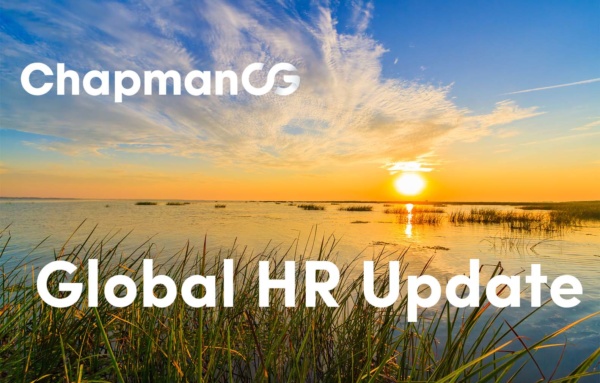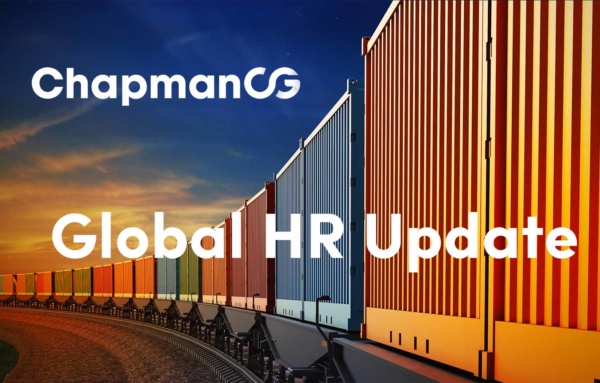In today’s complex, global business world, there is still a shortage of internationally experienced Human Resources talent. The gap between demand and supply is growing, even though the ‘international career track’ holds much more appeal for the HR profession than it did in the very recent past. In this brief article, we highlight some of the reasons behind the need for companies to prioritize the development of a bigger pool of globally mobile HR professionals. We also consider why global HR careers will offer the most exciting and challenging opportunities for the best and the brightest up-and-coming HR practitioners in years to come.
Creating a Sustainable Competitive Advantage
The ability of many companies to achieve desired levels of business performance relies on their ability to effectively penetrate rapidly growing and emerging markets. This is a difficult task for most organizations when the necessary talent is not readily available in-market. More often than not, critical opportunities and the most capable talent do not reside in the same geography. The rapid pace of globalization means that the gap between commercial opportunity and the ability to muster the talent to take advantage of it is widening for the majority of multinational employers. This issue hits at the heart of the global Human Resources function. Closing this gap is one of the most important, if not the most important agenda item for today’s multinational corporation CHRO.
It is clear that leading multinational employers will require a much bigger pool of globally experienced and mobile HR talent, to address the abovementioned demands of today’s competitive business environment. Further increasing the degree of difficulty is the new competition being created by the emergence of non-Western multinationals on the global stage. This new wave companies from major geographies such as India, China and Korea, hungry to expand internationally, are now beginning to aggressively compete for talent with longer-established US and European multinationals, especially in rapid growth and emerging markets.
A diverse and internationally experienced, globally savvy HR team is increasingly becoming the ‘price of entry’ for addressing the challenges and opportunities of today’s global marketplace. And yet, even the most sophisticated HR organizations are challenged to keep up with the emerging markets driven growth; whilst at the same time being financially constrained by the performance of struggling larger economies, where existing HR talent does not generally have the experience or expertise to be deployed effectively to greener pastures.
Foreign Talent, Local Package
Until very recently, expatriate Human Resources opportunities were limited to a small number of senior HR Leaders who were more often than not sent out on assignment from a Western multinational global headquarters. For companies, the cost of deploying expatriates was hefty – estimated to be three to five times that individual’s annual salary. This often created questions in the organization about ROI on that investment and consternation within the receiving market about inequality and excessive privilege versus the locally hired workforce.
More recently, the rapid pace of globalization as well as the current global economic situation has been a great equalizer in helping to harmonize the cost of talent across major geographies. Western expatriate talent has never been cheaper, when compared to local talent in the biggest, most exciting growth markets globally, such as China and India. Salary inflation, driven by an acute shortage of local talent has been running at 15% to 30% annually in recent years for local leadership and specialized senior talent in these key global growth markets. Today, the cost of top talent in both India and China is already at or above U.S. and European levels — with other geographies looking set to follow.
At the same time, there is a growing supply of locally experienced Western talent willing to work on a local or a ‘local plus’ basis, where employers help to partially (but not fully) subsidize major areas of personal cost for employees such as housing or schooling. The full ‘bells and whistles’ expat package isn’t dead, but it’s certainly dying in all but true ‘hardship’ markets. Leading multinational employers are developing innovative compensation packages for locally hired foreign talent and for employee requested transfers. We are now seeing a new generation of rising HR leadership which is very happy to move on a local or a local plus basis; whilst more seasoned and experienced HR Leaders often fight for a shrinking pool of fully subsidized expat packages.
In contrast, in past years ambitious HR Leaders from China and India have moved themselves and their families to the U.S. and Europe (often at their own cost), assuming that their career opportunities and earning power would be greater in the West. However many are now returning, to take advantage of commercial and financial opportunity in their home markets. While hiring companies are welcoming this with open arms, these globally experienced nationals generally command substantially higher compensation than their local counterparts, creating added complexity for HR and compensation and benefits leaders. This trend is set to continue as professionals from other emerging countries and regions (e.g. Latin America, Africa) begin to follow the same path to the West.
This rapid evolution of the global workforce presents some interesting complexities for the HR function:
- As the cost of talent in growth markets continues to rise, there will be a continued ‘evening out’ of leader compensation from market to market — and a continued standardization and equalization of pay packages. However, regulatory and tax issues in local markets will remain difficult and complex to navigate.
- Companies are being forced to be highly creative and innovative in the way packages are being structured for expatriates and locally hired foreigners. The level of understanding required to determine the best approach often requires deep local knowledge of multiple markets. The global C&B Leader who has not worked outside of headquarters is going to be less well equipped to compete with her or his better traveled counterparts in being able to develop the most effective solutions.
- Multinational employers are being forced to take a more holistic view of an increasingly diverse global workforce and address retention issues. For example, many companies lose key leadership when an expatriate assignment is completed and they are unable to offer the returning expat a suitably attractive (and well timed) opportunity in their home market. Even today, many companies do not have the long term planning processes in place to deal with retention of a globally dispersed leadership team.
This massive global restructuring is creating great challenges (and headaches!) for HR departments and great career opportunities for a new generation of HR Leaders, with the requisite global and multi-market experience.
Diversity and its Link with Expatriate Management
For the majority of organizations, the Diversity and Inclusion function sits separate to C&B and Global Mobility. And yet, in reality these areas are converging on a global level, which is adding increased importance, visibility and complexity to both functions. We now work and live in an exciting and challenging world where global mobility need not equal a Westerner on an expensive expat package and where ‘localization’ does not necessarily deliver the cost savings it used to.
While ‘localization’ has been the catch cry for many multinationals, the more enlightened employers have long understood the perils of adhering to a strict localization policy above all e
lse. More than ever, top multinationals are now seeing the importance and embracing the benefits of selecting expatriates from a diverse pool. Increasingly, the agenda is the creation of multicultural, diverse teams in not just some but all markets. For the vast majority of companies, it’s easier to come to terms with the theory than the practical implementation of the necessary policies and practices across the globe.
Ultimately, one key benefit of forging a tight link between global mobility and expatriate management is the opportunity to create a truly balanced global HR leadership table, where today’s most exciting growth markets (and the powerhouses of tomorrow) have the necessary global exposure to enable their input into policy making and guiding the future of the organization. The global arena presents many exciting new frontiers for each of the HR disciplines. We have not mentioned Talent Management, where, for example, a vast amount of cutting edge work remains to be done around methodologies and tools to assess and develop cultural flexibility and intercultural skills in global workforces.
What all of the above means is that HR Leaders have to constantly look at new and better ways of handling the global C&B, mobility and D&I disciplines; in terms of how they relate to each other and how the necessary Talent Management expertise is garnered. These trends are creating seemingly infinite new and exciting opportunities for up and coming HR practitioners and specialists.
Creating the Better Balanced HR Executive
There is a growing acknowledgment among top Human Resources Leaders that the best balanced executives have a combination of headquarters and field experience. Until now, the individuals who have enjoyed the benefits of both have largely been limited to a relatively small pool of Western expatriates.
For HR Leaders to excel, or sometimes even survive, in a global environment, they need to have significant experience living and working outside of their own local market and culture. Clearly a number of years experience in multiple markets is best. Often overlooked is the value of combining multi-market field credentials with headquarters experience. Although HQ roles can be viewed as ‘far away’ from customer and marketplace reality, the HQ is where up-and-coming leaders obtain C-suite exposure and have the chance to observe why and how critical decisions are made. Mentors and advocates are invaluable to a rising executive and generally these are most easily found and accessed within a global headquarters.
As the global HR profession matures and diversifies, there is little doubt that top of the CHRO agenda will be the creation of a strong and diverse bench of HR Leaders with the right level of exposure to field operations internationally as well as the sensibilities of the corporate headquarters. This is also something that ambitious employees will be pushing for, in order to enhance their own careers.
The Opportunity HR to be a Truly Global Business Partner
The future success of multinational companies will increasingly hinge on their ability to link their most strategically important business opportunities with their most capable, elite talent — regardless of the geographic source of that talent. The HR Leader who is able to assemble the right team with the right experience to understand the complexities and nuances of a truly global workforce and drive the right processes and practices to forge this link will command the highest salaries and the choice of the best roles in the industry.
It’s hard to believe that no so long ago; the ‘international’ track was not often seen as the best route to the C-suite. Today, it is hard to imagine that any HR Leader who has not lived and worked outside of her or his country of origin would be a serious contender for a future CHRO role with a leading multinational corporation.
Increasingly in business today, it is understood that there is a big difference between doing a ‘global’ job which involves a lot of travel from a HQ base; versus having the benefit of immersion in a variety key growth markets and business cultures. The best up-and-coming HR executives are recognizing this opportunity and they understand the importance of being flexible in their expectations in order to get onto an international career path with a top multinational. Meanwhile, the strongest HR leadership is clear on the need to move aggressively in removing the barriers to mobility and creating a bigger and more diverse global HR talent pool. This bodes well for global HR as being the best place to be within the profession for many years to come.
 Andrea Merrigan
Andrea Merrigan Orelia Chan
Orelia Chan Stanislav Medvedev
Stanislav Medvedev Fleur Daniell
Fleur Daniell Finian Toh
Finian Toh Tim Rayner
Tim Rayner Nicola Hasling
Nicola Hasling Stefanie Cross-Wilson
Stefanie Cross-Wilson


